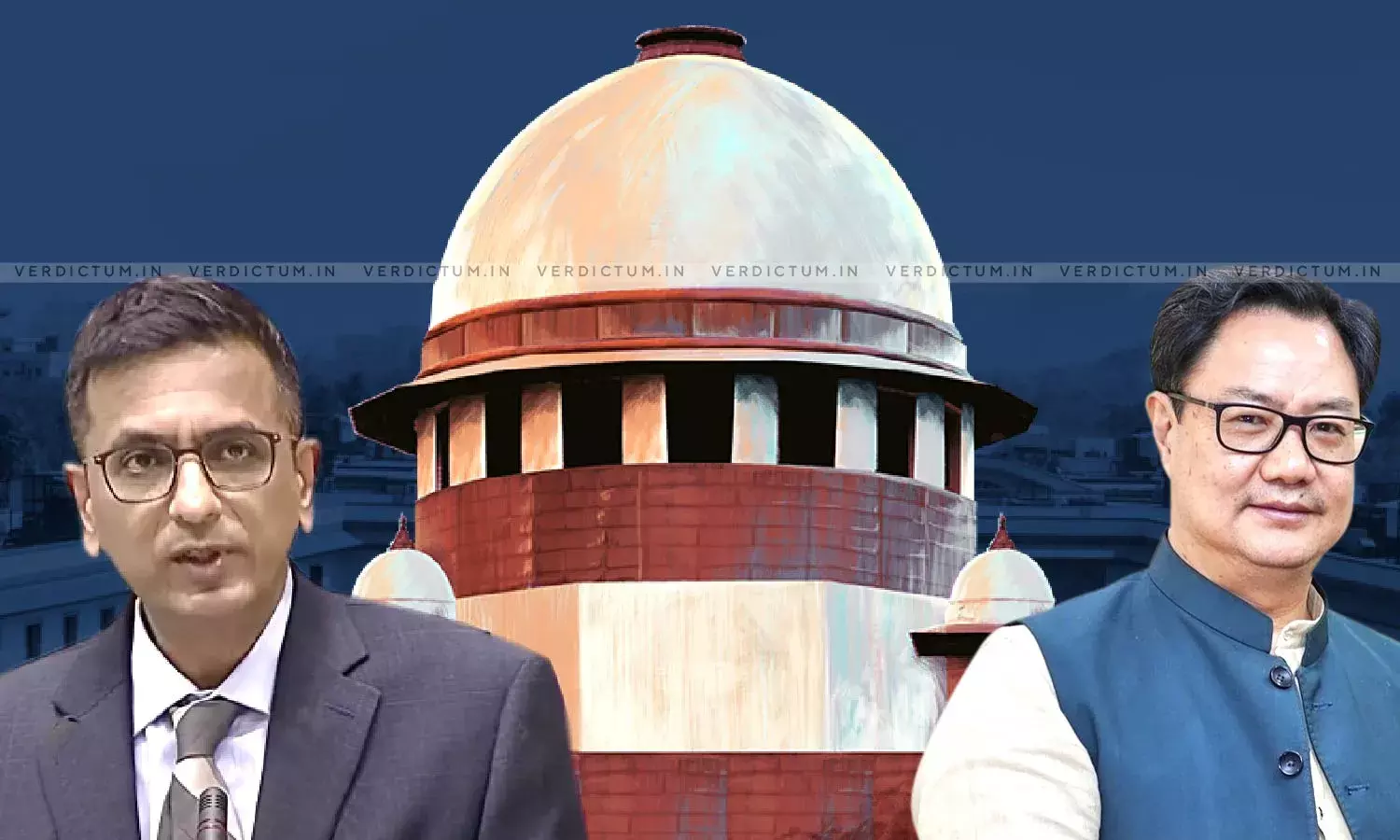Waste Of Precious Time Of Supreme Court: Law Minister Remarks After SC Agrees To Hear Pleas Against Ban On BBC Documentary

The Union Law Minister Kiren Rijiju has commented on the pleas filed before the Apex Court against the Centre's decision to 'ban' the BBC documentary on the 2002 Gujarat riots and its action against the social media posts sharing links to the documentary.
"This is how they waste the precious time of Hon'ble Supreme Court where thousands of common citizens are waiting and seeking dates for Justice", tweeted the Law Minister after the Supreme Court agreed to list the pleas next Monday.
Today, the Bench of Chief Justice DY Chandrachud, Justice PS Narasimha and Justice JB Pardiwala agreed to list a PIL filed by Advocate ML Sharma challenging the Center's 'ban' on the documentary and plea by journalist N Ram, Advocate Prashant Bhushan and TMC MP Mahua Moitra challenging the removal of their tweets with links of the documentary on February 6.
The Law Minister had recently criticised the judiciary over the huge pendency of cases. "Around 4.90 crore cases are pending. It is a huge number, especially when you think about the so many people unable to get justice. Pendency means delay of justice. Delaying of justice means denial of justice. Justice must be delivered at the fastest possible pace", the Minister had said last week.
Recently, there was a standoff between the Centre and the Supreme Court Collegium after the Collegium comprising the three senior most judges of the Apex Court, including the CJI, made public the objections of the centre to the candidature of some individuals based on objections of the RAW and IB.
The Law Minister had termed it a matter of grave concern. "As far as making serious inputs of the RAW and the IB public is concerned, it is a serious issue. I will comment on it at the appropriate time", the Minister had said.
The Minister had informed the Parliament that the Center has sent suggestions for supplementing the Memorandum of Procedure (MoP) for the appointment of Judges to the High Courts and Supreme Court and sought inclusion of the Central Government’s representative in the Supreme Court Collegium and the concerned State Government’s representative in the High Court Collegium.

